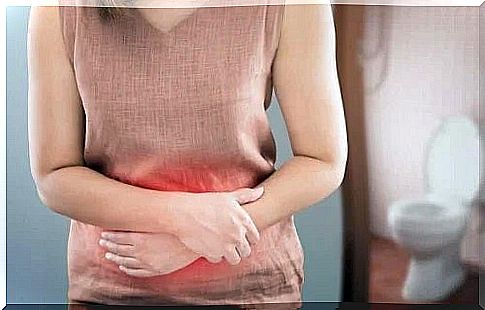5 Recommendations For Chronic Constipation

Chronic constipation occurs when a person has irregular bowel movements for several days or weeks. Although many people suffer from constipation occasionally, others have severe problems, suffering from inflammation and pain. In this article, we will make 5 recommendations for chronic constipation, which will help you alleviate the problem in a short time.
Synthetic laxatives or certain medications can be used to treat chronic constipation. However, this may vary depending on the cause of the problem and the current state of health of the person concerned. What other measures help control chronic constipation?
Lifestyle changes play a very important role in treating this condition. Therefore, we want to share tips that can help you control your constipation.
5 recommendations for chronic constipation
Diseases such as irritable bowel syndrome, Parkinson’s disease or diabetes can cause chronic constipation. However, the problem is mainly related to a low-fiber diet and a sedentary lifestyle.
Therefore, you need to improve your daily habits, especially your diet. The goal is to help the stool pass more easily through the intestines to restore peristalsis. If this does not work, your doctor may suggest alternative treatments.
1. Exercise

Regular exercise helps to improve bowel function, thus relieving chronic constipation. Sport increases the muscular activity of the intestines and helps to eliminate retained waste. This activity also has a positive effect on stress and sleep habits. In addition, it improves cardiovascular health and supports physical and mental well-being.
Try to dedicate 20-30 minutes a day to get these benefits.
2. Keep your stress level under control
Many people choose to ignore stress, but this can worsen the symptoms of chronic constipation. So, if you want to enjoy life more, you have to find ways to deal with stress.
Fortunately, many therapies can help you alleviate your symptoms in minutes. Meditation, yoga and breathing exercises are among the most popular. Massages and aromatherapy sessions are also beneficial.
3. Drink more water

Insufficient amounts of water or other healthy fluids can affect bowel movements. In fact, many cases of chronic constipation occur due to the fact that the body is dehydrated. Therefore, you should drink plenty of water throughout the day to avoid constipation (about 6 to 8 glasses).
Remember that age, current health and habits determine the amount of fluids needed daily. You need to increase your water intake when, for example, you suffer from certain diseases or do sports.
4. Establish a routine
Frequent changes in lifestyle can damage bowel movements. Having irregular eating patterns, not getting enough sleep or resisting the urge to go to the bathroom can change your body’s natural rhythms.
Therefore, you should establish a routine to help treat chronic constipation. This, in turn, decreases stress and other emotional falls that aggravate the condition. Some tips for establishing a routine are:
5. Include dietary fiber in your diet

Remember: Fruits must be eaten whole to get the maximum amount of fiber. The production of juices will lead to the loss of a large amount of fiber.
Do you suffer from abdominal inflammation? Do you have difficulty going to the toilet regularly? Put these 5 recommendations into practice to get rid of chronic constipation!
If you do not notice any improvement in your condition after a few days, consult your doctor or pharmacist.









